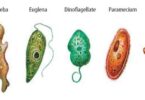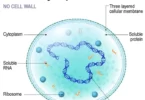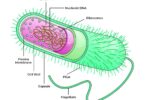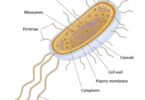MCQ ON Pre -fertilization events for NEET |MCQ ON Pre – fertilization events NEET Biology class 12th |MCQ Questions for class 12 Biology chapter 1, Pre – fertilization events with answer | Check the below NCERT MCQ question for class 12 Biology chapter 1 based on Pre – fertilization events with answers.
MCQ Questions for class 12 Biology with Answers were prepared based on the latest pattern. We have provided class 12 Biology MCQ questions on Pre – fertilization events with answers to help students understand the concept very well.
MCQ on is useful for NEET/ CSIR/ UGC/ CBSE/ ICSE /AIIMS EXAM/ AFMC EXAM/ JAC exam/ STATE LEVEL MEDICAL EXAM
Pre – fertilization events :– Pre-fertilization events refer to a series of processes that occur before the actual fertilization of an egg by a sperm. These events are crucial for ensuring successful reproduction in sexually reproducing organisms and can vary among different species. Here are some key pre-fertilization events:
1. Gamete Formation: In most organisms, specialized cells called gametes are produced through a process called gametogenesis. In humans, for example, gametogenesis results in the formation of sperm in males and eggs (ova) in females.
2. Attraction and Recognition: In many species, there are mechanisms that help attract sperm to eggs. Chemical signals or pheromones can play a role in this attraction. Additionally, there are often recognition mechanisms that ensure sperm of the same species can bind to eggs.
3. Gamete Transport: The male gametes (sperm) and female gametes (eggs) need to be transported to the site of fertilization. This can involve the release of gametes into a reproductive tract, such as in humans, where sperm are ejaculated into the female’s reproductive tract.
4. Sperm Capacitation: In some species, sperm must undergo a process called capacitation to become fully capable of fertilizing an egg. This process typically involves changes in the sperm’s membrane and chemical composition.
5. Timing and Coordination: In many cases, timing is crucial for successful fertilization. Both male and female gametes need to be ready for fertilization at the same time. This coordination can be influenced by environmental cues or hormonal signals.
6. Barriers and Competition: Various barriers, such as physical or chemical barriers, can exist to prevent the entry of multiple sperm into an egg. Competition among sperm may also occur, where only the fastest or most viable sperm successfully fertilizes the egg.
7. Polyspermy Prevention: To ensure that only one sperm fertilizes an egg mechanisms are in place to prevent polyspermy, where multiple sperm try to fertilize the same egg. This is essential to maintain the correct genetic balance.
These pre-fertilization events are essential for reproductive success and play a critical role in the continuation of species. The specific mechanisms and processes involved can vary widely across different organisms, reflecting the diversity of life’s reproductive strategies.
MCQ ON Pre -fertilization events for NEET
Here are 15 multiple-choice questions (MCQs) related to pre-fertilization events along with their answers:
1. What is the primary function of gametogenesis?
a) Fertilization
b) Growth
c) Gamete formation
d) Digestion
Answer: c) Gamete formation
2. What are gametes?
a) Specialized cells for growth
b) Reproductive cells
c) Blood cells
d) Muscle cells
Answer: b) Reproductive cells
3. Which of the following is NOT a pre-fertilization event?
a) Gamete formation
b) Fertilization
c) Sperm capacitation
d) Gamete transport
Answer: b) Fertilization
4. What is the purpose of attraction and recognition mechanisms in pre-fertilization events?
a) To prevent fertilization
b) To repel sperm
c) To ensure compatibility between sperm and egg
d) To initiate growth of the embryo
Answer: c) To ensure compatibility between sperm and egg
5. In which organ do humans produce sperm?
a) Ovary
b) Testes
c) Uterus
d) Fallopian tube
Answer: b) Testes
6. What does sperm capacitation involve?
a) Activation of egg
b) Changes in the sperm’s membrane and chemical composition
c) Fusion of gametes
d) Implantation in the uterus
Answer: b) Changes in the sperm’s membrane and chemical composition
7. Timing and coordination are important in pre-fertilization events. What do they refer to?
a) The timing of birth
b) The timing of mating
c) The synchronization of gamete release
d) The duration of pregnancy
Answer: c) The synchronization of gamete release
8. What is the term for the prevention of polyspermy?
a) Monospermy
b) Unispermy
c) Bispermy
d) Multispermy
Answer: a) Monospermy
ALSO READ:-
● YOU CAN WATCH BIOLOGY SIR Youtube channel
9. Which of the following is NOT a pre-fertilization barrier?
a) Chemical barriers
b) Physical barriers
c) Emotional barriers
d) Behavioral barriers
Answer: c) Emotional barriers
10. What attracts sperm to eggs in some species?
a) Heat
b) Light
c) Chemical signals or pheromones
d) Sound
Answer: c) Chemical signals or pheromones
11. What type of cells result from gametogenesis in females?
a) Sperm
b) Ova (eggs)
c) Zygotes
d) Somatic cells
Answer: b) Ova (eggs)
12. Where does fertilization typically occur in humans?
a) Uterus
b) Ovary
c) Fallopian tube
d) Cervix
Answer: c) Fallopian tube
13. What is the purpose of sperm competition?
a) To help sperm fuse with the egg
b) To increase the chances of fertilization by the best-adapted sperm
c) To create genetic diversity
d) To block other sperm from entering the egg
Answer: b) To increase the chances of fertilization by the best-adapted sperm
14. In humans, what coordinates the timing of gamete release?
a) Moon phases
b) Hormonal signals
c) Environmental temperature
d) Random chance
Answer: b) Hormonal signals
15. Which of the following is a key aspect of pre-fertilization events?
a) Placental development
b) Somatic cell division
c) Ensuring genetic diversity
d) Post-fertilization barriers
Answer: c) Ensuring genetic diversity
Conclusion:-
MCQ ON Pre – fertilization events for NEET | In humans, what coordinates the timing of gamete release? a) Moon phases, b) Hormonal signals, c) Environmental temperature, d) Random chance, Answer: b) Hormonal signals







Leave a Comment